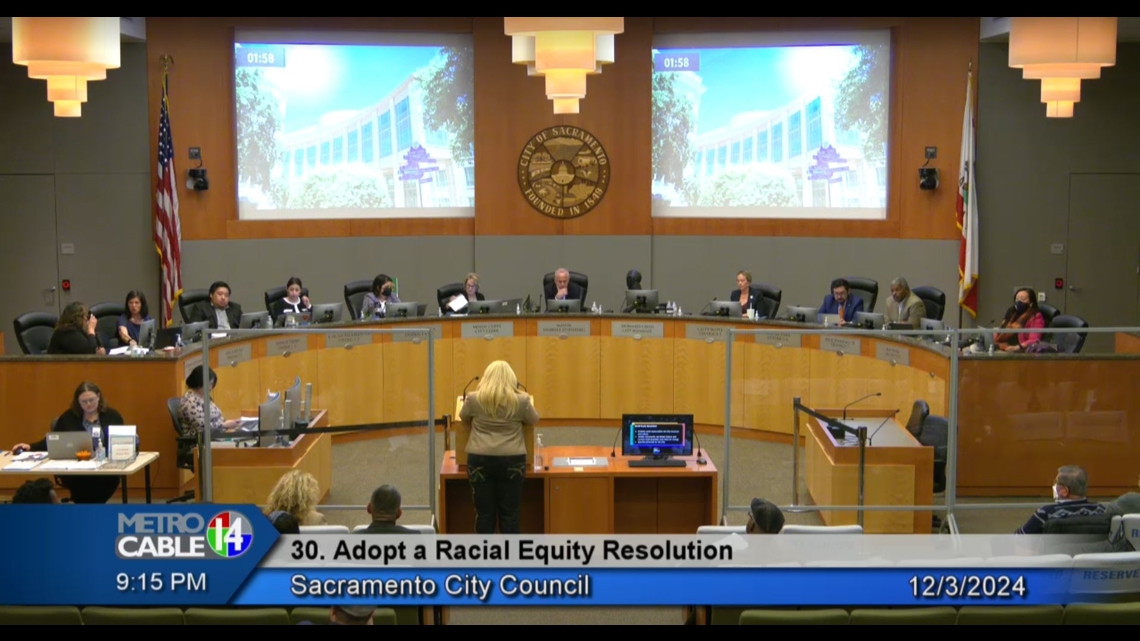
The Sacramento City Council approved resolutions that will benefit communities affected by systemic racism.
SACRAMENTO, Calif. — Sacramento’s City Council unanimously approved two historic resolutions Tuesday to address racial equity and reparations. The resolutions plan to embed racial equity into city operations, and expand reparations efforts from a mayoral initiative to a citywide program.
The first resolution will integrate racial equity into Sacramento’s culture and decision-making, continuing the city’s efforts to confront its history of systemic racism. The goal is to create tangible benefits for all residents and foster partnership and accountability between the government and the community. The resolution also introduces initiatives like the creation of a Racial Equity Action Plan by 2026.
“Racial equity is everyone’s fight — my fight, our fight, and all of our residents,” said Kao Ye Thao, a member of the Racial Equity Alliance. The Racial Equity Alliance and Racial Equity Council, groups made up of Sacramento residents, led listening sessions to gather input on racial inequities and shape the priorities for the resolution.
The council delayed the resolution in November after City Manager Howard Chan’s office proposed an alternative version, raising concerns among local leaders and advocates. Chan later withdrew his revised proposal, clearing the way for the current resolution to pass.
The second resolution expands reparations efforts, transitioning from a mayoral-led initiative to a citywide program aimed at compensating Black residents harmed by systemic racism in Sacramento.
In partnership with the city, six organizations surveyed the Black and African American community to gauge support for local reparations. Of the 510 responses, 80% expressed support for reparations, while about 20% opposed the idea.
“We are owed reparations,” said Chris Lodgson, a member of Coalition for a Just and Equitable California (CJEC) and a descendant of a person formerly enslaved in the United States. “It is a debt that’s owed — it’s not a handout, a gift, [or] grant. We are owed it.”
The reparations effort began in 2021 under Mayor Darrell Steinberg’s leadership, who was invited to join the MORE Coalition [Mayors Organized for Reparations and Equity]. That same month, the Sacramento city council adopted a resolution supporting Assembly Bill 3121, which established a statewide task force to study and develop reparation proposals for African Americans.
Mayor-elect Kevin McCarty will inherit this initiative, and pledged his commitment to continue working on reparations at a local level.
Aimée Zenzele Barnes, the City’s Diversity and Equity Manager, told the Council reparations will be a phase of work building on and connecting with the ongoing citywide racial equity efforts recently approved.
While the resolutions mark a historic step forward, advocates emphasize substantial work lies ahead.
“It will take us doing things a bit differently,” said Jesse Villalobos from Race Forward, a partner with the City. “It will take us sharing power in ways that haven’t been shared in government structures in the past.”
Community leaders remain hopeful, but they stress achieving real change will require continued commitment and collaboration.


